As many working in the field know, the current systems and infrastructure designed to support people with Intellectual and Developmental Disabilities (IDD) is unsustainable. To meet the market challenges shaping the system, Merakey, a developmental, behavioral health, and education nonprofit provider, is exploring technology to meet the needs of the IDD population, while adding value to the system. Our goal is to use technology supports to empower individuals to be more independent, while using fewer staff and government resources.
The intersection of three different industry-wide trends has presented an urgent challenge to our ecosystem: First, health care costs continue to rise at an exponential rate; second, demographics show that people with IDD are aging and therefore in need of more care; and third, the entire health care industry is facing a workforce shortage, leaving a dwindling number of qualified staff in place to care for the needs of these populations. Amid these larger trends, the Center for Medicare and Medicaid Services (CMS), the largest funder of services and supports for the IDD population, is pushing for greater independence, inclusion, and integration in how services and supports are delivered for these populations. To make this system sustainable in the years to come, there must be a move towards greater efficiency through innovation.
One way to build this value into the system is by using technology to amplify staff to create a high quality, person-centered model of care. This is why Merakey has made the commitment to integrating technology into our programs and, more importantly, into our organizational culture. Founded over 50 years ago, Merakey is currently operating in 12 states and provides mental health services, intellectual and developmental disability supports, and education and autism solutions to adults, children, and families. Merakey leverages our expertise and extensive experience to develop innovative solutions and holistic models of care to meet the needs of individuals, their families, public and private health care funders, and community partner organizations.
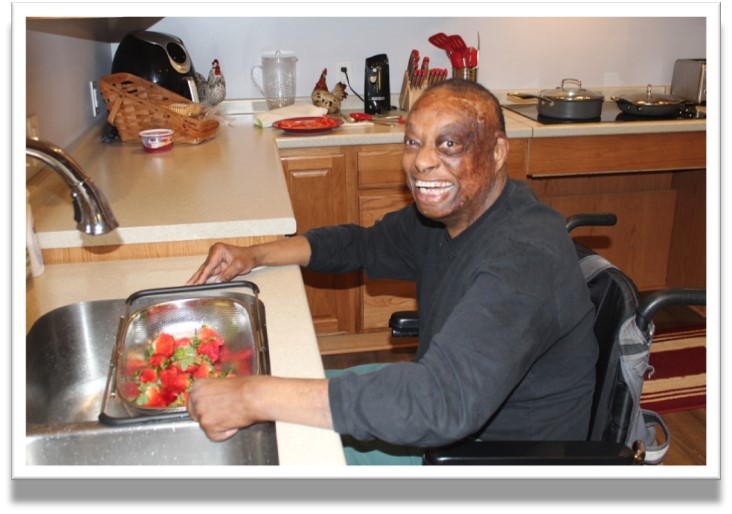
Using smart home automation, remote medical supports, remote passive supports, communication technology, and wearable technology, Merakey is solving these systemic problems, while at the same time increasing the independence of those we serve. But this is a complicated process that is slowed down by payer regulations and traditional reimbursement models. It is not simply turning on a switch.
Merakey has spent a good part of the past seven years forming partnerships with multiple technology vendors, testing digital health tools, and incorporating technology into new care delivery models. Our focus has been on creating opportunities for better communication, better health, and greater independence within a person’s home and internal world. Since 2013, we have successfully implemented smart home/independent living technology for safety and independence for six individuals; remote active clinical and passive monitoring for medical and activity management for more than 50 individuals; and applications for transportation accessibility for 30 individuals. To date, we have more than 450 individuals utilizing various methods of communication technology. This includes adaptations to applications and customized devices to allow for safe internet use and communication with family members and friends.
As we embarked on our technology transformation, three main goals emerged: One, to determine which technologies, if any, can allow for an improvement in living conditions and the care being delivered in selected facilities; two, to judge the acceptance of the technologies by both the staff and individuals with disabilities and mental illness; and three, to assess whether the technologies should be rolled out to other facilities with similar care models.
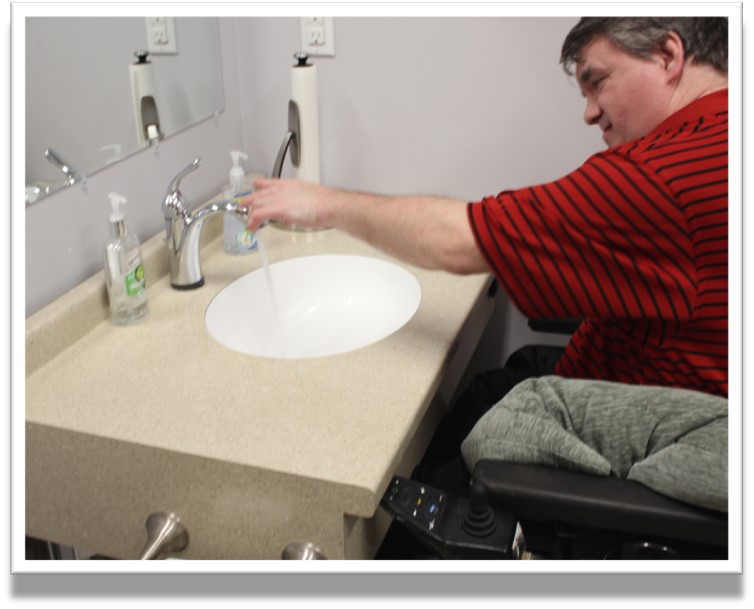
During our first round of technology pilot programs, data were continuously collected from multiple locations to determine if the technologies resulted in an improvement in living conditions and to judge the acceptance of the technologies by both the staff and individuals. Standardized staff questionnaires were self-administered and, similar to the questionnaire for individuals with disabilities, repeated at three-, six- and 12-month intervals. The Glasgow Depressions Scale was administered by staff members at the inception of the project and at six- and 12-month intervals. Preliminary findings indicate that the technologies have exceeded expectations, resulting in plans to expand to other facilities.
To ensure that the use of technology is person-centered, we focused on identifying individual barriers that prevent people from living meaningful lives and to find innovative ways to help people reach what they define for themselves to be a quality of life they desire. Merakey has found, throughout all our exploration, that not all technologies work for every person. But through staff training and making technology a regular part of our programs, staff now see exploring technology as part of our regular processes.
To help with this process, we developed an assessment tool, which is part of our electronic health record, that matches the goals and outcomes identified for each individual that we support to the technological solutions that are available. This technology assessment is now incorporated into every individual service plan.
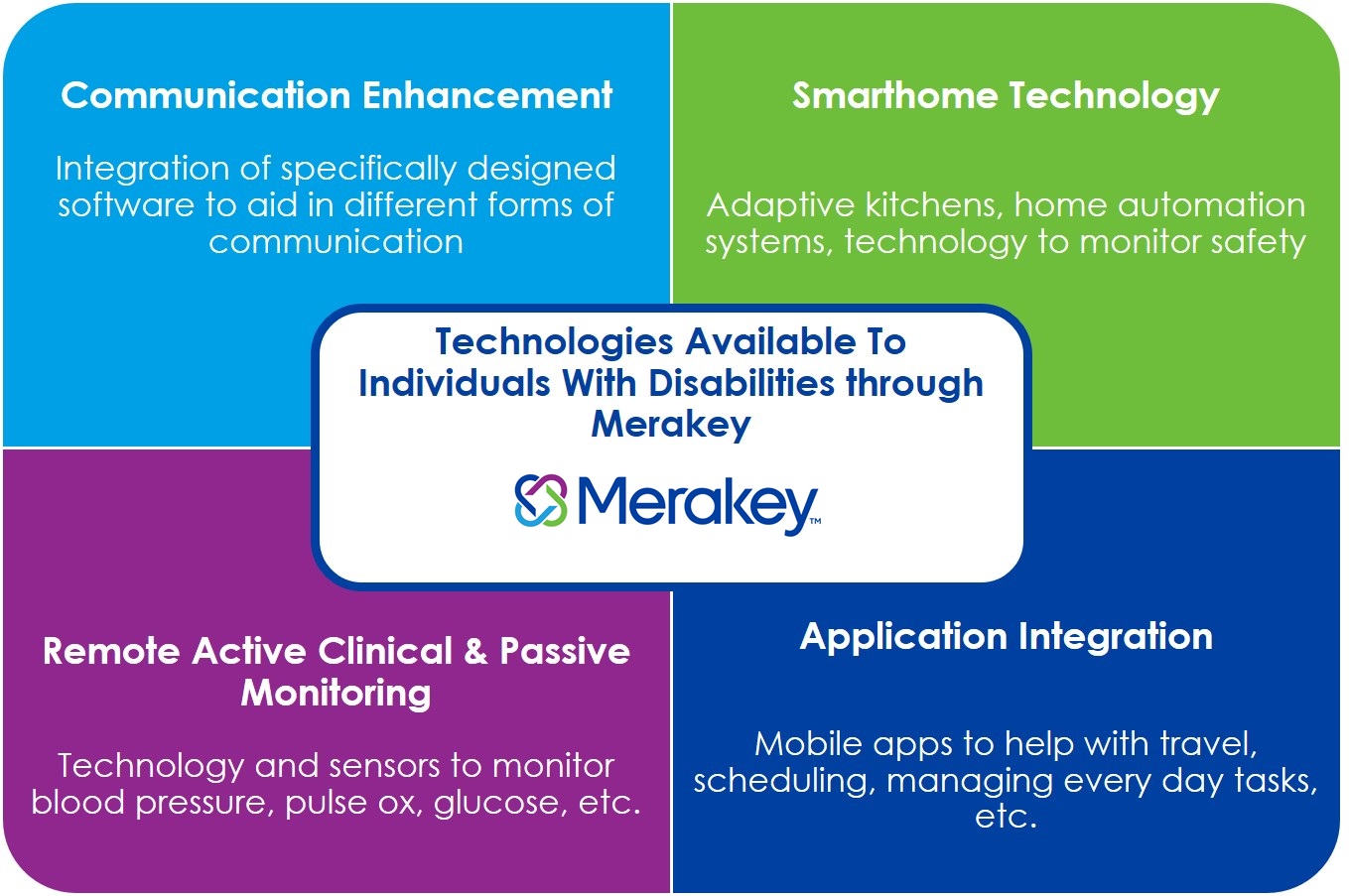
Currently, our technology initiatives have been funded by grant support. A sustainable financial model can only exist if the care delivered with the use of the new technologies is reimbursable by Medicare and Medicaid as billable services that can be reimbursed. Several states have granted Medicaid waivers that can now allow reimbursement for care delivered with some of the selected technologies, but not all the services delivered using the selected technologies are reimbursable. Merakey is currently working with Medicaid health plans in several states to explore reimbursement options and will be testing funding models with several individuals this year.
While Merakey continues to create new ways of improving people’s life outcomes and to fine-tune what we have already accomplished, we are expanding our focus to include the community. What technologies can help a person to leave their internal world and access all that the external world has to offer? To be able to access their favorite shopping malls, places of worship, place of employment, social events, medical appointments, and other community activities? And how can they do that as independently as they desire -- choosing to experience it with or without others?
There is an entire world of technology that has already been developed and that continues to be developed to make these dreams become real. In our next phase, Merakey is exploring how we can take a more “whole person” approach that focuses on how technology can help people with IDD to gain full independence. We are focusing on testing current transportation systems and navigation systems to get places, communication devices for independent communication, devices that use prompting software as task reminders, smart canes for visually impaired navigation, and other technologies that make this journey to independence possible.
Author bios
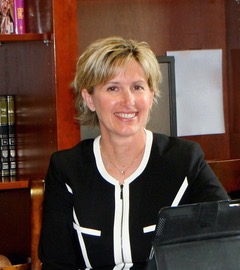
Rene Burke, MS, BSN, RN has more than 33 years of experience in the fields of medical/surgical nursing, renal and liver transplantation, research, nursing/hospital administration, nonprofit management, and project management. Rene currently serves as a business development consultant for Merakey where her consultative work focuses on the research, development, and design of methods to incorporate many forms of assistive technology into existing or new care models. She develops technology programs that work toward goals of increasing independence, raising the quality of and access to care that uses fewer staff and government resources. For more than 10 years, Rene provided operational leadership for all professional services at Allegheny Valley School, a subsidiary of Merakey, supporting people with Intellectual and Developmental Disability. Rene holds a Master of Science degree in Nonprofit Management and a Bachelor of Science degree in Nursing.
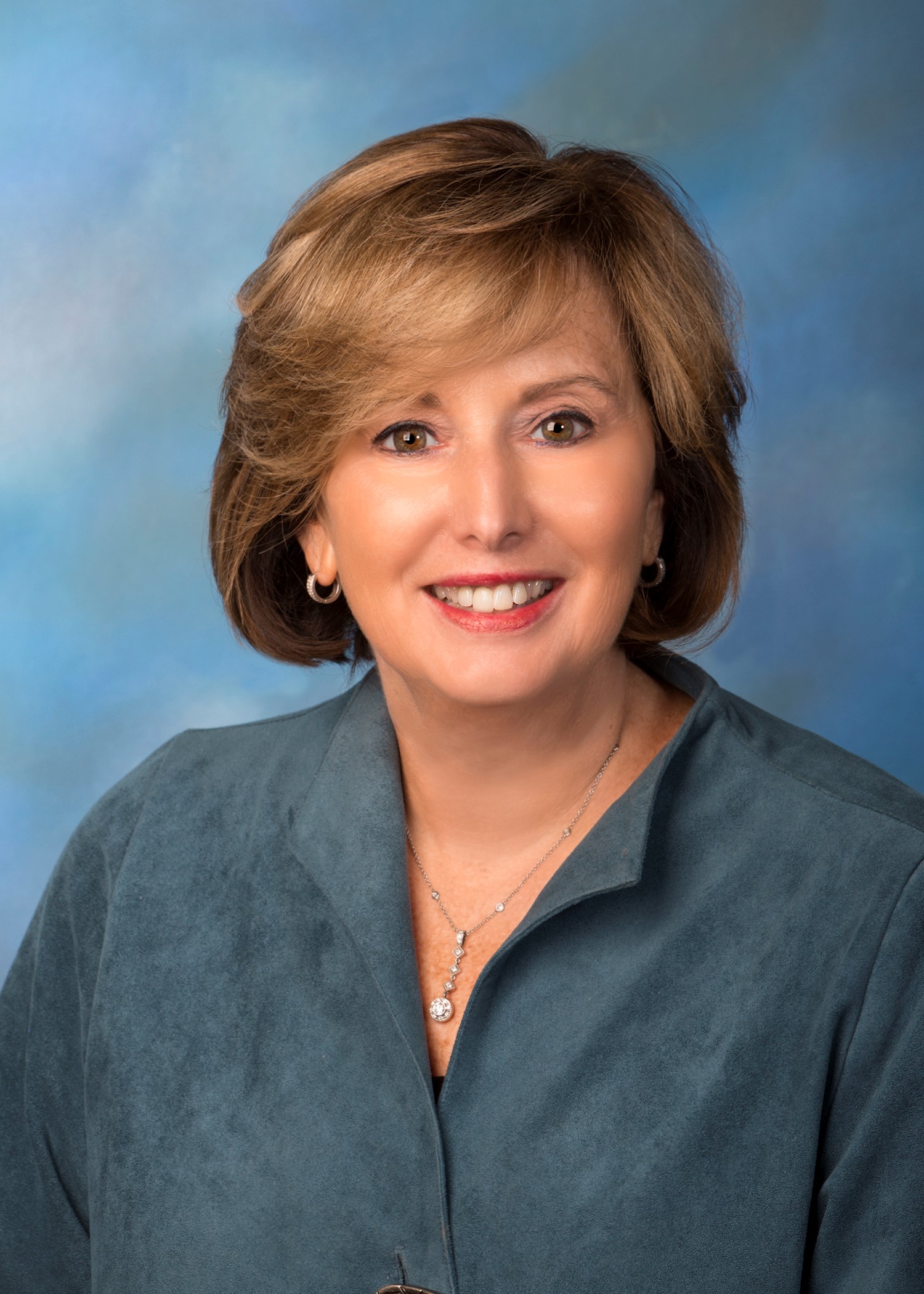
Sherri Portnoy, MBA, SPHR has more than 25 years of experience in nonprofit administration. She is currently the Vice President of Professional and Administrative Services for the Intellectual and Developmental Disabilities Division at Merakey. Sherri is responsible for staff development, professional services, special projects, strategic planning, liaison to human resources, and quality improvement. She oversees the technology-focused initiatives for individuals with cognitive disabilities. Prior to joining Merakey, she was employed as a health care consultant for a large law firm in Philadelphia, Pennsylvania. She serves as a board member for BARC and is chair of its’ human resources committee. She is a former adjunct faculty member of DeVry University in Philadelphia, Pennsylvania. Sherri has presented at international and national conferences and co-authored several papers promoting the use of technology.
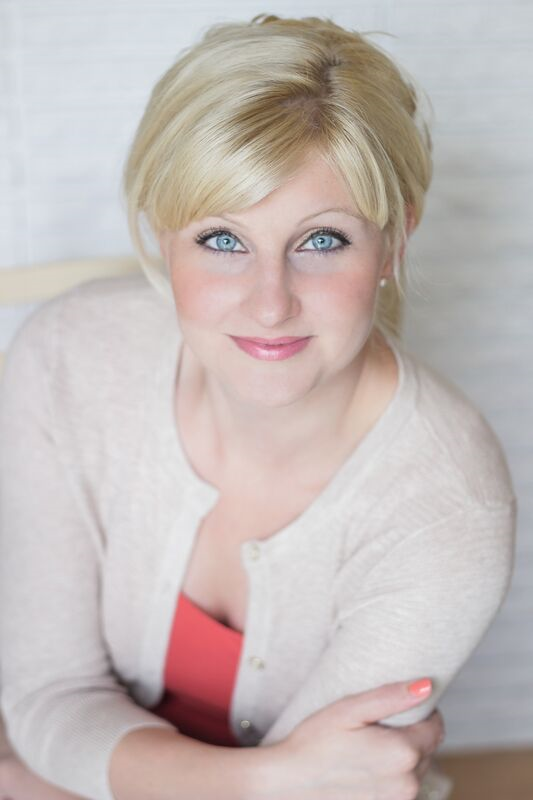
Shaleea Shields has been an integral part of the Merakey team for more than 15 years. Currently, Shaleea serves as Merakey’s IDD Innovation Manager, heads the Merakey Career Enhancement Program, serves as the chairperson for the IDD division’s policy committee, participates as a member of Merakey’s Corporate Learning Collaborative, and acts as a project manager on several technology initiatives. During her time at Merakey, Shaleea has led the implementation of many technology projects, including two smart homes, communication technology programs, transportation technology, and a project focused on improving quality and services through a nursing model change. Shaleea is a member of the Commonwealth of Pennsylvania’s Office of Developmental Programs Policy Taskforce, and she has presented at international and national conferences and co-authored several papers promoting the use of technology.


